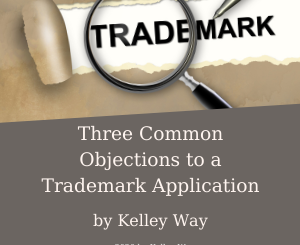Understanding Publishing Contracts: The Grant of Rights Clause by Kelley Way
 Today we welcome a returning guest writer to Writer’s Fun Zone, Kelley Way, who is stopping by to chat with us about “Understanding Publishing Contracts: The Grant of Rights Clause.” Enjoy!
Today we welcome a returning guest writer to Writer’s Fun Zone, Kelley Way, who is stopping by to chat with us about “Understanding Publishing Contracts: The Grant of Rights Clause.” Enjoy!
And now for a bit of necessary legalese: Please note that this article does not constitute legal advice, and that an attorney-client relationship is not formed by reading the article or by commenting thereon.
***
Congratulations, you found a publisher that wants to publish your work!
All that’s left now is to sign the contract and…oh my, that’s a lot of paper.
And you’re not sure what even half of those words mean. But it’s okay to just sign it, right? The important thing is just to get published.
Wrong!
Getting locked into a bad contract, or tied to a bad publisher for the rest of your career, could be worse than not getting published at all. ALWAYS read the contract, and if you don’t understand it, find someone who will explain it to you.
To get that explanation started, I’m going to go over a grant of rights clause you might see in your publishing contract:
- “The Author hereby grants to the Publisher the exclusive right to print, publish, sell, distribute and license the Work in the English language in all formats, in whole or in part, throughout the world, during the full term of copyright and any renewals and extensions thereof, except as provided herein.”
I’ve bolded the words to pay attention to.
Here’s the breakdown of what they mean:
“…the exclusive right to print, publish…” Most publishers will want to be your exclusive publisher, at least for this particular work.
They don’t want to compete with other publishers over the exact same book. It’s normal for them to ask for exclusive rights. (If you have other works published by yourself or another publisher, make sure this exclusivity clause only applies to this specific work)
“…in the English language…” You may see some variation here. Since the book was (presumably) written in English, the publisher will want to publish it in English.
They may want the right to publish it in other languages too, and you’ll have to decide if you want to give them that right. They may also want the right to translate your book into other languages, which is a separate right. Again, you’ll have to decide if you want to give them that right, or if you have someone in mind already to make that Lithuanian edition you can see in your head.
“…in all formats…” You’ll have to be careful here. There are a lot of different formats for a book – hardcover, softcover, mass market paperback, and ebooks, to name a few. The tricky thing about this right is that, by saying all formats, they are giving themselves rights to formats that may not exist yet.
This happened with the digital book market – no one saw it coming, so no one put it into any contracts, and the New York Times was hammered by the Supreme Court for not getting permission from authors before digitizing their old newspaper content.
With “all formats,” they won’t have to come back for permission if some new format pops up. However, as the author, you really want them to come back for permission, because then you have an opportunity to make some more money from the book.
“…throughout the world…” There’s typically three variations on this clause – permission to publish worldwide, permission to publish in North America, or permission to publish in the U.S. only. You’ll have to decide how much control you want to give them – though if you don’t have a specific foreign publisher in mind, you may be better off just giving them those rights.
“…during the full term of copyright…” This is another right to be careful of. If you give them rights to your work for the duration of copyright, and the contract doesn’t give you an “out” if you decide to leave this publisher, you could be stuck with them forever (okay, not literally, but getting out of that situation is a big hassle).
Make sure the contract includes a clause that lets you get your rights back if you really want to. Alternatively, you can ask the publisher to limit the term – say, you have the option to renew in five years, or you have to renegotiate in ten years. There’s definitely room for variation here.
Hopefully you got some good takeaways for your next contract negotiation. If you’d like to learn more about publishing contracts, you are welcome to email me at kaway@kawaylaw.com.
***
ABOUT THE AUTHOR

Kelley Way was born and raised in Walnut Creek, California. She graduated from UC Davis with a B.A. in English, followed by a Juris Doctorate. Kelley is a member of the California Bar, and an aspiring writer of young adult fantasy novels.If you’d like to learn more about publishing contracts, you are welcome to email her at kaway@kawaylaw.com.






